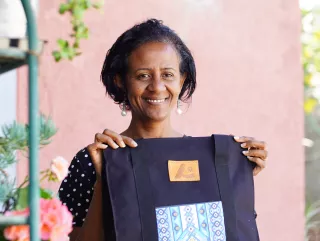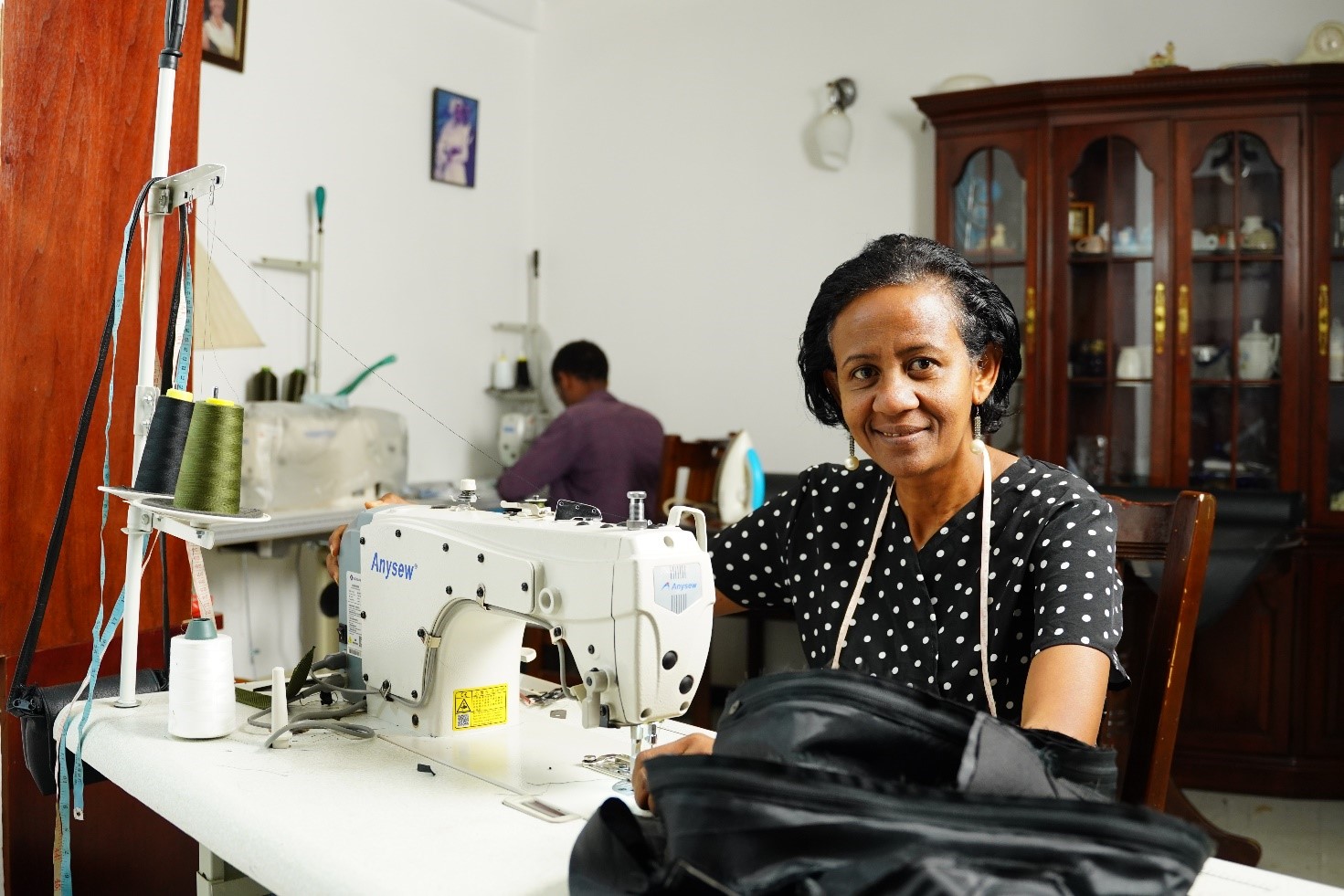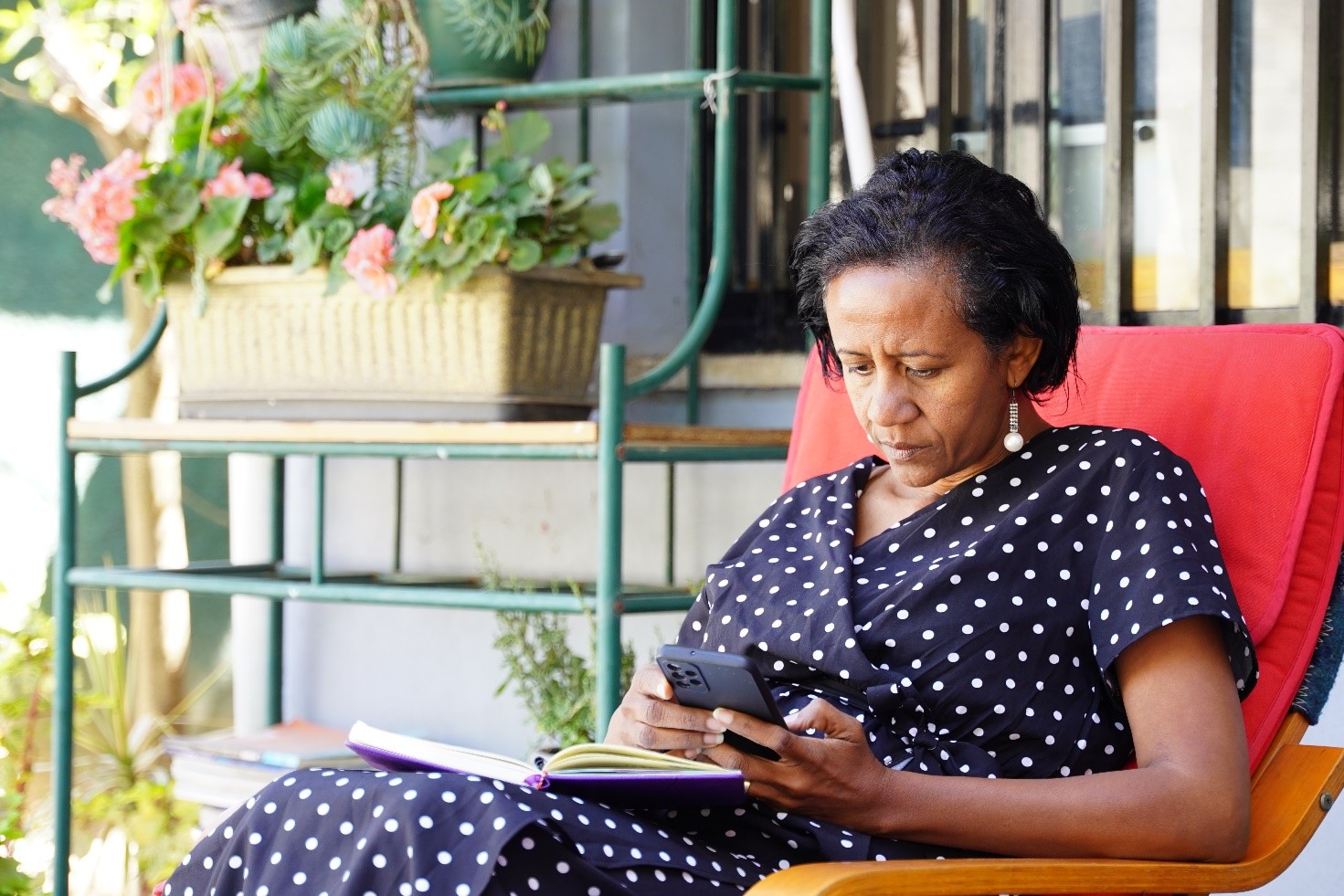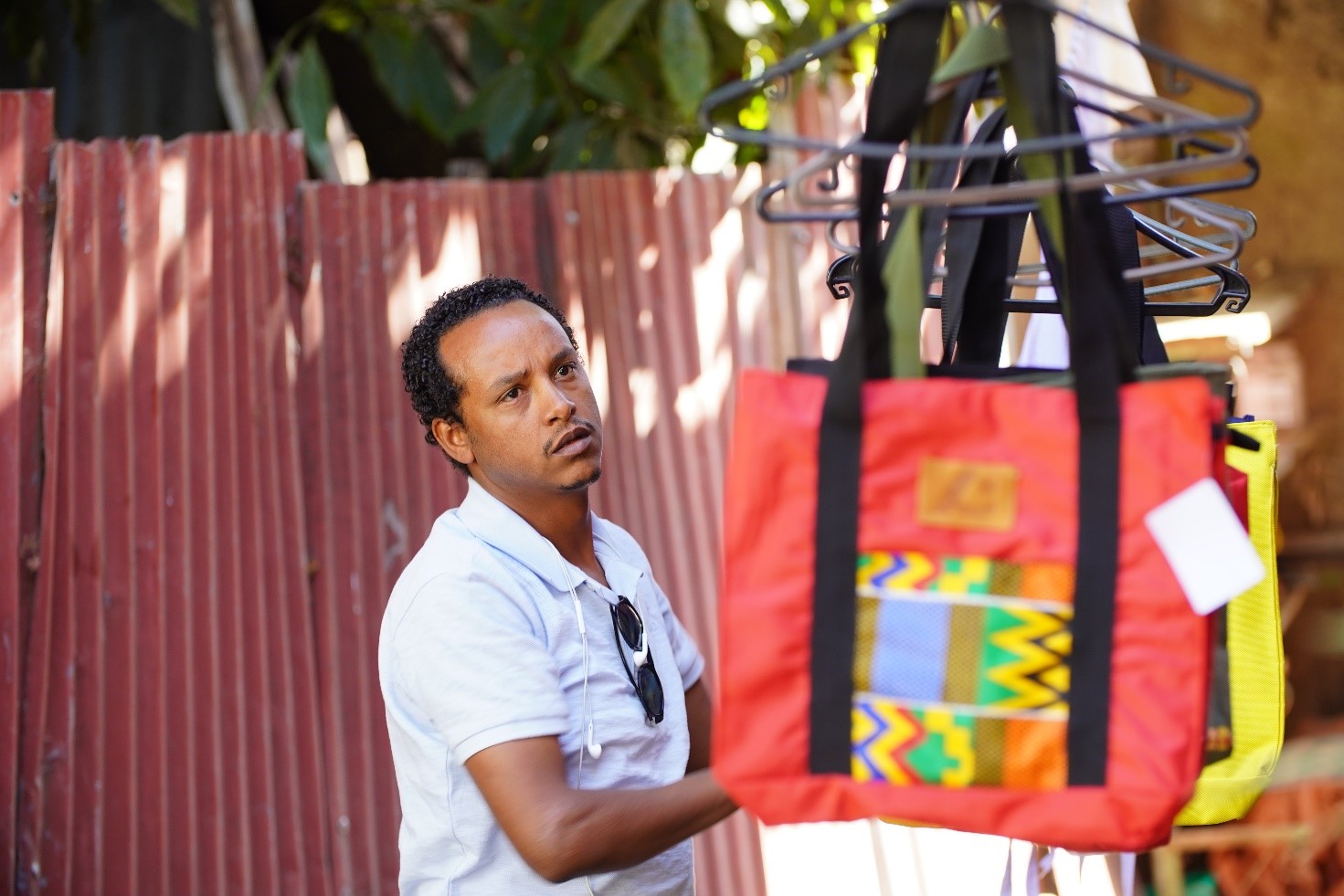
High quality handbags from recycled fabrics
Lula Design by Azeb Temesgen
Machines whir and rattle in a regular rhythm. Azeb Temesgen works with concentration at one of the sewing machines in her shop, skillfully stitching together fabric pieces that might not seem to match at first glance. After many years of work experience as an employee, the 49-year-old took a new step with a different approach in her sewing workshop. 'I've been passionately sewing for years! I'm not just interested in new fabrics, but also in what can be done with old pieces. That's how I came up with the idea of combining fabric scraps with new pieces.'
Upcycling – transforming fabric scraps or used fabrics into new products – became Azeb's trademark. Today, her workshop produces a variety of products under the label 'Lula Design'.
WIDU.africa Success Story: LULA Bags, Ethiopia | WIDU

A bold step into independence with her sewing workshop
Azeb Temesgen's shop is based in the Yeka neighborhood, northeastern and not far from the city center of Addis Ababa, the capital of Ethiopia, where she also studied. Her passion for sewing and designing has been with her for a long time. The transition to entrepreneurship was significant, given that she had worked in various companies and positions throughout her professional life, a total of 23 years.

Upcycling and high work standards
She knew that the initial period wouldn't be easy. 'I already owned a sewing machine that I had been using for a long time. Initially, I worked from home. But I had always planned to open my own shop and hire employees.'
Moreover, she didn't want to open just any sewing workshop; she pursued a different approach that was deeply connected to her heritage. Ethiopia is the oldest cultural country in Africa with a long Christian tradition. Ethiopian artists have produced an impressive variety of religious paintings, icons, and crosses. Religious craftsmanship, traditional items, clothing, and jewelry are still made by hand with intricate craftsmanship. Against this backdrop, Azeb's commitment to her own design and production becomes understandable. However, she lacked the means to achieve it.

Taking off with WIDU support
Azeb's acquaintance Ibrahim, who lives in Sweden, learned about WIDU through friends: 'Azeb had told me about her business idea, and I liked the fact that she wanted to supply the market with alternative products made from organic and reusable materials at affordable prices. That's why I invited her.' Procuring equipment, paying for labor, and renting the shop were the most pressing reasons for Azeb to apply for the original WIDU grant program. With Ibrahim's diaspora remittance, her private investment, and the WIDU grant, she was able to purchase several sewing machines and pay an employee's salary. With the help of these machines, Azeb was able to achieve her goal: the precise production of bags with typical Ethiopian patterns and colors. By skillfully combining fabric scraps with new materials, she not only conserves resources but also demonstrates economic acumen – upcycling the Ethiopian way!
Azeb now employs three seamstresses. The diverse, stylishly multicolored product lineup from 'Lula Design' includes canvas tote bags, handbags, fabric pouches, and accessory purses, all good handmade quality and at affordable prices. She sells her bags at markets and online through social media.

